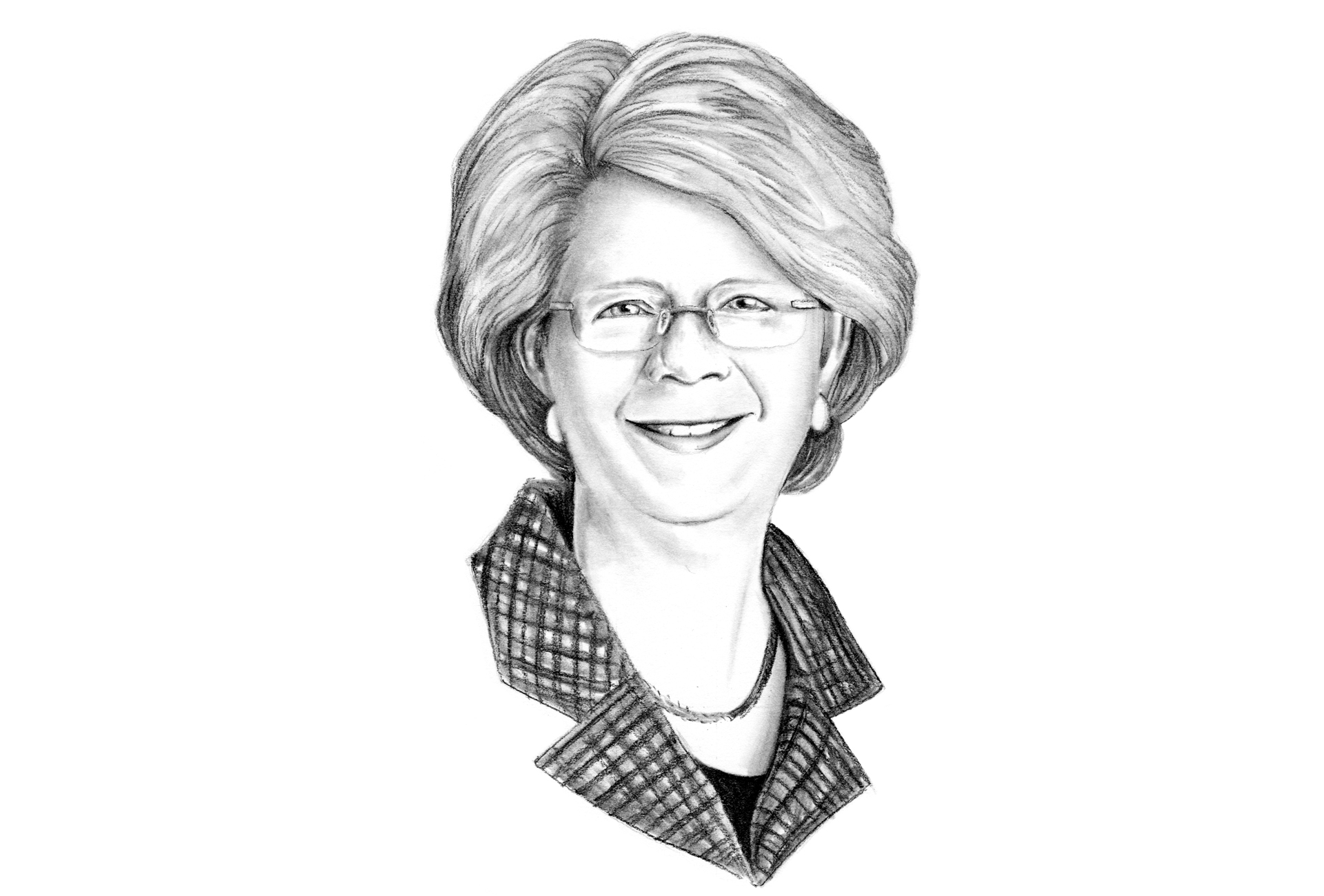Banking on Liberal Arts
Beth Mooney, History ’77, is the chairman and CEO of KeyCorp, making her the first female chief of a top 20 U.S. bank. Headquartered in Cleveland, Ohio, she oversees more than 15,000 employees and $91 billion in assets. She has been named one of the most powerful women in banking by Forbes, Fortune and American Banker.
What are some of your fondest memories of Austin?
The Armadillo World Headquarters, which breaks my heart is gone, Zilker Park and Scholz Beer Garten. I jokingly tell people I went to Texas when 6th Street was a street. One of my fond memories of Austin was being there when progressive country music was coming of age with “Waylon and Willie and the boys.” While I’m a person who loves my work, I also like to live life to the fullest.
What career advice would you offer to new graduates?
Life is either too long or too short to not be happy at home and work, so pick a career that you have passion for. As people graduate and think about launching their careers, not every job you take will do that for you, so you have to have this overarching sense of building a career.
One thing that helped me stand out when I didn’t have the business credentials was my ability to communicate. People are making more—both conscious and subconscious—assessments about who you are and what you are by how you conduct yourself and how you communicate. That’s doubly true in a world that’s gotten so informal through the way people text each other. Translated into a business environment, that doesn’t necessarily serve you well. We hire a lot of liberal arts graduates because I think they are more balanced in that ability and that’s a critical skill as you go through your career.
Does your liberal arts education give you an advantage in banking?
When I first started in banking, I was at a credit-training program and we had to write analytical memorandums. All the accounting majors had, “this one up by this much and this one down”—I called it the elevator memos. I always thought about the context of the company, the competitive environment and how they were positioned. I could give context and meaning to things that I learned from my liberal arts degree as opposed to being able to just crunch numbers with the best of them.
What were some of the lessons you learned during the 2008 financial crisis?
If you don’t take stock and learn lessons, history is destined to repeat itself. From my perspective and view of the industry, I believe we did learn our lessons. There was never a moment in the downturn that I wasn’t proud to be a banker because I believe our industry is vital to the American economy.
I always say write down that list of things you promised you’d never do again if you had to do it over. One of the things I talk about in our company is the clarity around what’s our purpose, what’s our vision, what’s our strategy. How we execute and stay consistent about that is the path forward where you don’t find yourself taking the opportunistic turn—the wrong fork in the road that a lot of people took during the financial downturn. Warren Buffett has a saying: “Until the tide goes out, you don’t know who’s skinny dipping.”
What does it mean to be named one of the most “powerful women” in banking?
I recognize that I’m in an industry where being the first female CEO, much like our new CEO at GM, is groundbreaking. I also see it as both an opportunity and obligation. I get to be a leader who says you can do things the right way for the right reasons and it can be good for your shareholders, too.
When I became CEO, I went to a Harvard Business School class for new CEOs. They had you give your retirement speech. One of the things I said was, “I think it will be a great day when I retire, if the fact that I was the first female CEO is a footnote, not the headline.”
